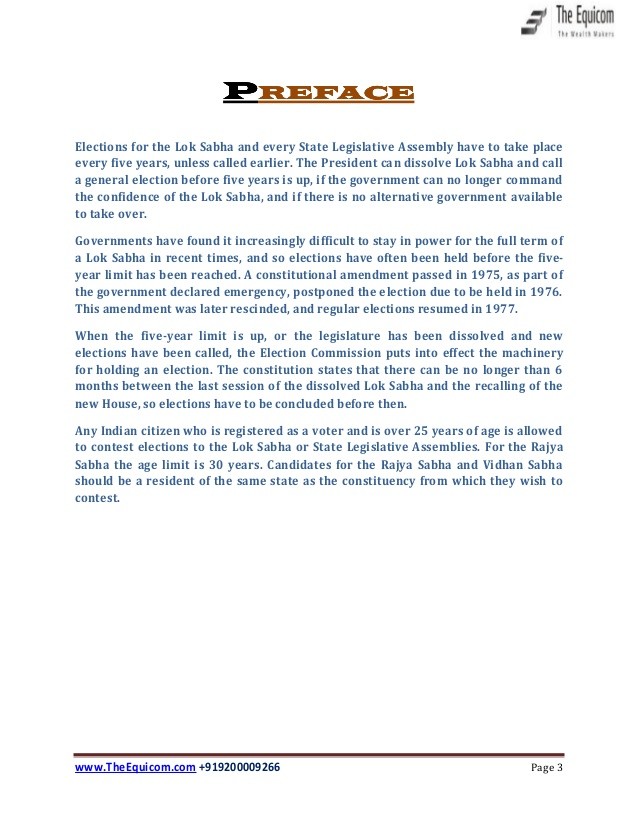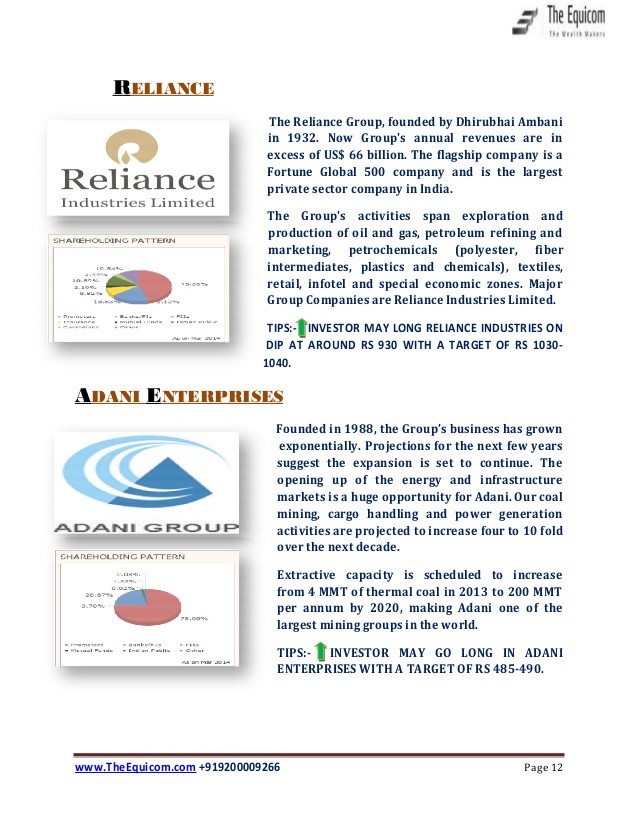Does the US Presidential Election Impact the Stock Market
Post on: 16 Май, 2015 No Comment

Theres a lot of uncertainty about the outcome of this Novembers US presidential election. That uncertainty extends to the impact of US elections on stocks prices, judging by the voluminous and often contradictory research on the topic.
Over the past century, which party occupies the White House has had no discernible or consistent impact on US equity markets , writes Russ Koesterich, CFA, global chief investment strategist for BlackRocks iShares ETF business. Presidential election years generally have coincided with favorable markets, particularly when the incumbent party wins , says T. Rowe Price. In a 2008 blog posted titled Presidential Elections and the Stock Market , Pete Davis concluded that most of the studies show quite an advantage for equities following the election of Democrats, but a Federal Reserve study concludes there is no consistent relationship if you correct for market volatility and test back to 1852.
The most frequently cited paper. according to Davis, is a 2003 article in the Journal of Finance by Pedro Santa-Clara, professor of finance at the Nova School of Business and Economics, and Rossen I. Valkanov, professor of finance at the Rady School of Management at UC San Diego. Davis noted:
[The authors] found 9% higher stock market gains for large stocks in Democratic administrations since 1928. However, Santa-Clara and Valkanov did not correct for swings in market volatility or examine periods before the Depression, when market volatility was lower. In a 2004 paper, two Federal Reserve economists, Sean Campbell and Canlin Li, made those corrections and found that the 9% higher return dropped to 4%. They concluded that market returns dont track with which party wins presidential elections.
A more recent article, How Political Conventions Affect Stocks , noted that in the 16 presidential election years since 1948, the S&P 500 rose during 11 Republican conventions (as measured from the start to the end of the convention), according to a report by S&P Capital IQ. In contrast, stocks made gains during only seven Democratic conventions.
Below is a list of additional articles published in the past five years that examine the link between US presidential elections (and administrations) and stock market performance.
Do Election Cycles Sway the Markets?
- In 7 Fascinating Facts About How US Presidents Affect The Stock Markets , editor Sam Ro briefly annotates several oft-repeated statements such as: the third year of a Presidents terms is usually the best for stocks and since 1900, only five presidents have seen stocks rise more than 50% during their term. (Business Insider. March 2012) CFA Institute’s latest survey of US members poses this simple question: Will the outcome of the election have an effect on the economy? A larger-than-expected 80% of survey respondents say that it will have an important impact on the economy going forward. Good news for people hoping something, anything really, gets going in Washington to remedy our economic malaise. (Market Integrity Insights. October 2012) In this podcast, Robert Stammers, CFA, talks to Michael Gayed, CFA, a co-portfolio manager at Pension Partners, to get a sense of what may happen after the election. Gayed often comments on macroeconomic trends and their effect on the capital markets. (Inside Investing. October 2012) The last seven months of an election year almost always boost stockholders portfolios, with the market having delivered positive returns for S&P 500 stockholders in all but two election years since 1952, according to Presidential Elections are Good for Stocks, But (Christian Science Monitor. February 2012) In a client note, Goldman Sachs offers 3 Reasons Why US Investors Should Take Election Cycles Very Seriously . First, the political stakes in presidential, parliamentary, or legislative elections often translate into changes in policies that can reshape the economic environment. Second, the regularity with which elections take place in most countries may give place to cyclical patterns in government and investment behavior. And third, elections can markedly increase political and social uncertainty. These three factors have the potential to affect all asset classes, especially equities, given their strong sensitivity to changes in the economic outlook. (Business Insider. February 2012) In Electoral Maths: Presidential Elections and the S&P 500 , FT editor John McDermott addresses the performance of US equities in past election years and the implications for 2012. (FT Alphaville, December 2011) Back in 2010 — two years into President Obamas term — Jeremy Grantham, the chief investment strategist at GMO, noted that despite precarious economic growth and the fact that stocks werent all that cheap, in the near term, there was a good chance that the market would rally. Why? Because at the time, the US was entering the sweet spot of the presidential election cycle and it’s very hard to bet against it.” As the reporter noted in A Presidential Reason to Buy Stocks , a cottage industry has sifted the data going back more than a century and found that the stock market has generally done much better in the second half of a president’s four-year term than in the first. (The New York Times, October 2010) In The Presidential Term: Is the Third Year the Charm? the authors respond with a decisive yes, noting that their research shows equities have generally prospered in the second half of a president’s term and especially during the third year. (Journal of Portfolio Management, Winter 2008) But in a recent radio interview, Rodney N. Sullivan, CFA, head of publications at CFA Institute and editor of the Financial Analysts Journal. told listeners that while it is “indeed true that under years three and four of a presidential cycle that stock markets tend to do better,” the data have been “misused or abused.” He offered two powerful counterexamples: In 1933, under President Franklin D. Roosevelt’s very first year, stocks rose more than 50%. Under President Herbert Hoover’s third year, stocks fell almost 50%. “What really drives performance in market is not the presidential cycle, it’s really the overall macroeconomy,” Sullivan said. (Enterprising Investor. 2012) The authors of the 2008 paper Financial Astrology: Mapping the Presidential Election Cycle in U.S. Stock Markets examined nearly four decades of stock returns and found that U.S. stock prices closely followed the four-year presidential election cycle. Stock prices generally fell during the first half of a Presidency, reaching a trough in the second year, and rose during the second half of a presidency, reaching a peak in the third or fourth year. (Social Science Research Network, October 2008)
Does the Stock Market Pick the President?
- InvesTech Research of Montana says the stock market is the most reliable indicator of who will win the presidency and has been for more than 100 years, according to Stock Market Picks 90 Percent of Presidential Elections . In other words, the election is a reaction to the stock market. (US News & World Report. February 2012) In her article, Does the Presidential Election Affect the Stock Market? , financial planner Lydia P. Sheckels notes that while some believe the results of the election affect stock market returns and others have concluded that it is the stock market’s returns that affect the results of the election, she errs on side of the latter. (Financial Planning Association. August 2012)

Does It Matter Who Wins the Election?
- A live chart (GOP Smacked ) created by the Economist suggests it does. As the subhead says: “Americas stockmarket has gained more under Democratic than Republican presidents.” (Economist. October 2012) Ron Rimkus, CFA, believes it is a fool’s game to try and tie presidents and election cycles to stock market returns. In a blog post, Elections and Stock Prices: Assessing the Impact Is an Exercise in Futility , he writes: “Oftentimes, we hear pundits ask: What US presidents were good for the stock market? How did the markets respond to a particular president? Or what political party has had more success in the markets? All of these questions are doomed to failure. Is it not possible for a president of one party to enact a policy typically favored by another party?” Rimkus notes that “most academic work ignores the vast differences and underlying nature of specific policies. So, the whole exercise of using statistical analysis to claim one party is better for the stock market than another is merely an exercise in. you guessed it. politics.” (Enterprising Investor. 2012) Bloomberg News asserts that Stocks Return More With Democrat in White House based on the fact that the BGOV Barometer from Bloomberg Government showed that over the five decades since John F. Kennedy was inaugurated, $1,000 invested in a hypothetical fund tracking the S&P 500 only when Democrats were in the White House would have been worth $10,920 at the close of trading on 21 February 2012 (the day before the article ran). A $1,000 stake invested in a fund that followed the S&P 500 under Republican presidents, starting with Richard M. Nixon, would have grown to $2,087 on the day that George W. Bush left office. (Bloomberg News. February 2012) The Market and Presidential Promises is a handy primer on presidential election cycle theory, which was developed by Yale Hirsch (creator of the Stock Traders Almanac ) and is based on historical observations that the stock market follows, on average, a four-year pattern that corresponds to the four-year election cycle. For another take on how politics can affect the stock market, see For Higher Stock Returns, Vote Republican Or Democrat? (Investopedia. September 2011 and October 2010, respectively) A 2011 paper, “Resolving the Presidential Puzzle ,” explores whether there is a risk-based explanation for higher returns during Democratic presidencies compared with Republican presidencies. Their findings show that the market exhibits higher returns when Democrats control the presidency, with smaller companies experiencing the most significant improvement. (CFA Digest. Summer 2011) Larry McDonald, the senior policy strategist for the investment firm NewEdge, appeared on Markets Now to share three portfolios for investors to look at depending on who wins the election: the Obama portfolio, the Romney portfolio, and the fiscal cliff portfolio. (Lawrence McDonalds blog, video)
No Matter Who Wins the Election, Geopolitical Risk Looms Large
- Whoever emerges the victor of the current election will face a raft of geopolitical challenges over his four-year term. Willis Sparks, an analyst in the global macro practice at Eurasia Group, a global political risk research and consulting firm, recently said he believes the turmoil of the past four years is likely to continue, making for a volatile era in international politics and global markets. Sparks laid out four sources of volatility: the rise of China; energy issues; state capitalism, particularly in China; and the lack of global leadership. (Enterprising Investor. October 2012)
Have you seen any interesting articles on how the presidential elections affect stock market performance? Share the links below.
Editors Note: This post was updated 2 November 2012.
Please note that the content of this site should not be construed as investment advice, nor do the opinions expressed necessarily reflect the views of CFA Institute.
White House photo from Shutterstock.














